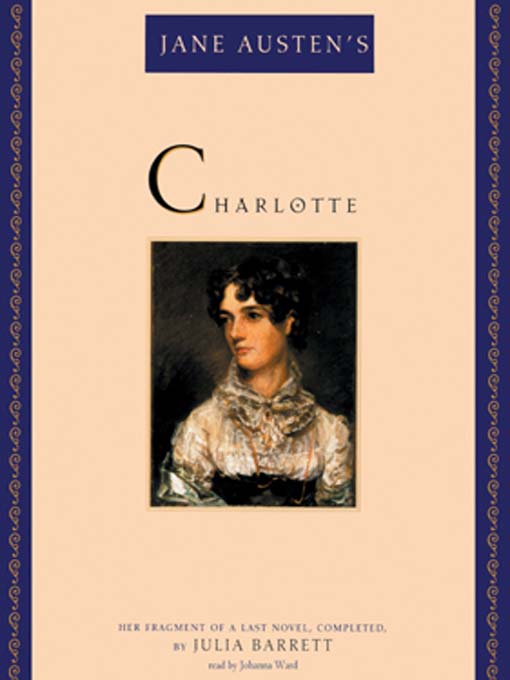
Jane Austen's Charlotte
Her Fragment of a Last Novel
کتاب های مرتبط
- اطلاعات
- نقد و بررسی
- دیدگاه کاربران
نقد و بررسی

Let's be clear here. This is not Jane Austen's CHARLOTTE, although the attribution is entirely understandable. If you had written it, you too would want to pretend that somebody else had. Here is a hash of themes and situations from PRIDE AND PREJUDICE, EMMA, SENSE AND SENSIBILITY, NORTHANGER ABBEY, JANE EYRE, and the novels of E. F. Benson, pretending to the bite and sparkle of a lemon mousse, but proving instead to be purest suet pudding. Why anyone would read this mess when the true Miss Austen is available I can't imagine, unless for the flawless performance of Johanna Wood, who deserves a medal. B.G. (c) AudioFile 2002, Portland, Maine

April 24, 2000
The author of two sequels to Jane Austen novels (The Third Sister and Presumption), Barrett now sets out to complete Austen's last book. When she died in 1817, Austen left behind 11 chapters of a novel chronicling the growth and demise of Sanditon, a town on the southern coast of Sussex. Thomas Parker and his wife have partnered with Sanditon's grande dame, Lady Denham, in an effort to establish the town as a center of tourism competitive with Brighton. A guest of the Parkers, fresh, sharp and level-headed 22-year-old Charlotte Heywood, is the novel's heroine. Charlotte's impressions of the people who populate Sanditon--haughty Lady Denham; her supercilious nephew, Sir Edward; her kind-hearted companion, Clara Brereton; and Thomas Parker's dashing younger brother, Sidney--set the scene. In brilliant Austen style, the first chapters prepare the reader for Edward's unrequited love for Clara, the possibility of a match between Charlotte and Sidney and grand social commentary. But where Austen leaves off, Barrett picks up with circumlocutory language, unclear and contradictory character descriptions and a general heedlessness for plot, cramming the story with minor characters, coincidences, scenes of smuggling and gambling. Clara and Sir Edward indulge in a melodramatic affair, and Barrett's positive presentation of a new protagonist, poet and intellectual Emmeline Turner, is at odds with Austen's mocking attitude toward similar characters in other works. Barrett also risks much in coupling her own prose with Austen's. Still, determined Austen fans may find the novel an intriguing if less than satisfying footnote to the Austen canon. (Apr.) FYI: Barrett is a pseudonym of Julia Braun Kessler.

























دیدگاه کاربران